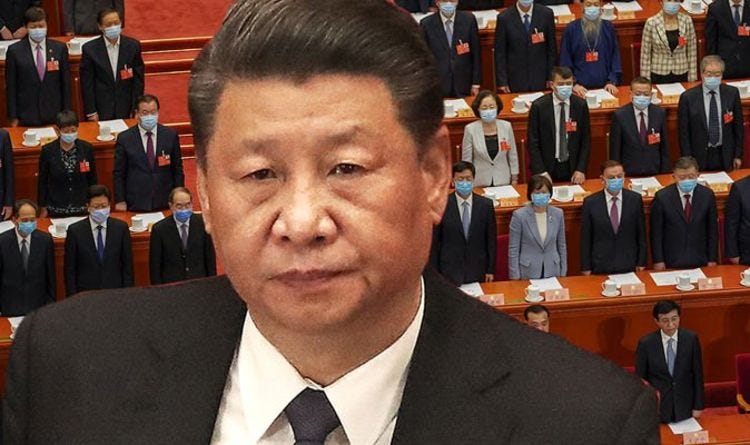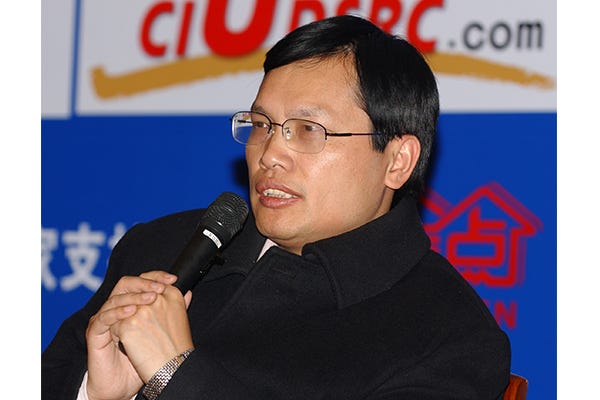China in Trouble
“The problem is the economy, the root lies in politics.”
Washington DC 6 SEP 2023
Invading Taiwan might have to wait, or alternatively, be rushed
In politics, when you make mistakes, your first priority is distraction, deflection and pointing blame for your failures on your opponents. Better yet, paint them as evil - “enemies of the people!” However, the implication that your enemies are strong enough to have an impact must be managed carefully. This challenge is multiplied in dictatorships. Therefore the rule of thumb is - the bigger the crisis, the greater the distraction. This begs the question: as the Chinese economy craters, will Xi Jinping resist the temptation to indulge himself in a NLW (Nice Little War)?
Perhaps a higher order question is: can the Chinese economy afford a NLW? Despite their immediate stimulatory effect, NLWs always ultimately break the bank. An invasion of Taiwan falls outside the parameters of an NLW for a range of reasons, principally because of geography - including the moat, shallow waterways, few potential beachheads, rugged mountain ranges, strong defenses, assured negative reaction of the international community, including sanctions that will exacerbate bad economic pressures, and an unpredictable response of the violated population (just ask any American who spent a candy and floral arrangement-free summer in Baghdad).
Accordingly, setting intemperance to one side, it would appear that Xi will not be able to afford a military distraction from his economic woes for quite some time. The inability to mount a NLW will only magnify attention and scrutiny of the leader’s domestic policy chops.
These are under an intense gaze.
Chinese economic indicators have been trending downward for some years. Occasionally, a potential crisis appears on the horizon and swift action by the party appears to correct the challenge or at least paper it over with benign wrapping.
That solution is as viable as a NLW, when “more than a quarter of all economic activity” is suddenly plunging into the abyss.
For the last three decades… the real estate sector became the engine of a transforming economy. Real estate employed millions and provided a store for household savings.
The current property crisis is a problem of the government’s own making. Regulators allowed developers to gorge themselves on debt to finance a growth-at-all-costs strategy for decades. Then they intervened suddenly and drastically in 2020 to prevent a housing bubble. They stopped the flow of cheap money to China’s biggest real estate companies, leaving many short on cash.
One after another, the companies began to crumble as they could not pay their bills. More than 50 Chinese property developers have defaulted or failed to make debt payments in the last three years, according to credit ratings agency Standard & Poor’s. The defaults have exposed a reality of China’s property boom: the borrow-to-build model works only as long as prices keep going up.”
There can be no better metaphor for the crisis than this 45 second video…
Chris Buckley in the NYT puts the crisis in a nutshell
Consumers are gloomy. Private investment is sluggish. A big property firm is near collapse. Local governments face crippling debt. Youth unemployment has continued to rise.
There are no easy solutions. It is unclear whether the debt bomb can be successfully defused. The political potential for youth unemployment to light a fire under repressive governments has been well demonstrated during the ‘Arab spring’. In China, local governments, dependent on property taxes, are struggling to workout how to survive in the wake of a plunging property market. Fiscal reform is needed, but expanding the tax base in a downturn will merely exacerbate the forces of decline. Some are suggesting greater liberalization of the economy but that runs counter to CCP control.
The economic setbacks are eroding Mr. Xi’s image of imperious command, and emerging as perhaps the most sustained and thorny challenge to his agenda in over a decade in power.
García Herrero, an economist at Natixis, wryly observes
“It’s ironic that we criticize [Xi] for being too powerful, but in a way here he needs to be more powerful to get this done.”
“Its the Politics Stupid”
As happens from time to time, voices of dissent are going viral. Hong Kong businessman, Lew Mon-hung, put it succinctly. “The problem is the economy, the root lies in politics.”
Dr. Hu Xingdou, professor of economics at Beijing Institute of Technology, has boldly addressed this reality head-on. In addition to economic reforms, Dr Hu has made some pretty remarkable foreign policy recommendations. He has been quoted as attacking everything that Xi holds dear.
“Downplay the Chinese model, prohibit the export of the so-called Chinese model, and maintain the existing international order. Stop or [downplay] implementation of the "Belt and Road" initiative, and focus on domestic construction. Adhere to Mao Zedong Thought: be modest and prudent, neither arrogant nor impetuous.”
Dr. Hu advocates for stopping construction of the sea forts in the South China Sea and "shelving disputes and pursuing joint development" in the case of the islands disputed by both China and Japan.
He knows how disastrous Xi has been for China’s position in the world:
Change the mindset of struggle. Return to the concept of peace and harmony. Change the image of the spokesperson, especially the spokesperson of the foreign ministry, as a Red Guard "Wolf Warrior", and return to the gentleness, honesty, modesty, and gentleness of the five thousand years of civilization of the Chinese nation.
Thirdoffset wonders what the consequences will be of such talk and if, indeed, it is real. It is brilliant advice and one hopes Xi does not listen because a return to the ‘peaceful rise’ school would encourage short term thinking in the region and work to corrode allied cohesion that has become so strong in the face of China’s belligerence.




